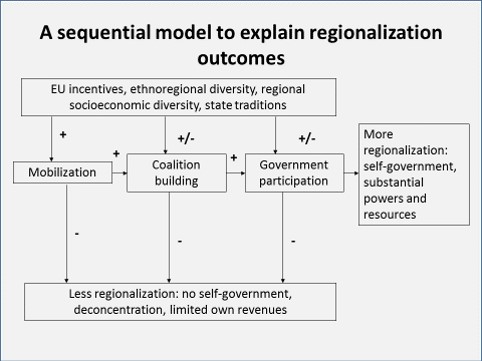In June 2018, I was invited to join the Editorial Advisory Board of
Regional and Federal Studies, one of the leading journals exploring territorial politics, federalism and regionalism. The journal carefully reviews, selects and publishes high-quality articles dealing with various aspects of regionalism and federalism crossing substantive, thematic, geographical, theoretical, and methodological boundaries.

The journal’s content spans federalism and multi-level government, decentralization in the developing world, post-conflict federal power-sharing arrangements, minority nationalist movements, and many other topics dealing with divided political authority and territorial diversity. Although the journal’s roots are in the study of Western European multi-level government, RFS has expanded its profile to incorporate regionalism, federalism and decentralization in the developing world and in the Americas.
I have always appreciated this journal and look forward to strengthening the expertise available to RFS editors, providing strategic guidance and promoting the journal further.
 The journal’s content spans federalism and multi-level government, decentralization in the developing world, post-conflict federal power-sharing arrangements, minority nationalist movements, and many other topics dealing with divided political authority and territorial diversity. Although the journal’s roots are in the study of Western European multi-level government, RFS has expanded its profile to incorporate regionalism, federalism and decentralization in the developing world and in the Americas.
I have always appreciated this journal and look forward to strengthening the expertise available to RFS editors, providing strategic guidance and promoting the journal further.
The journal’s content spans federalism and multi-level government, decentralization in the developing world, post-conflict federal power-sharing arrangements, minority nationalist movements, and many other topics dealing with divided political authority and territorial diversity. Although the journal’s roots are in the study of Western European multi-level government, RFS has expanded its profile to incorporate regionalism, federalism and decentralization in the developing world and in the Americas.
I have always appreciated this journal and look forward to strengthening the expertise available to RFS editors, providing strategic guidance and promoting the journal further.
 The journal’s content spans federalism and multi-level government, decentralization in the developing world, post-conflict federal power-sharing arrangements, minority nationalist movements, and many other topics dealing with divided political authority and territorial diversity. Although the journal’s roots are in the study of Western European multi-level government, RFS has expanded its profile to incorporate regionalism, federalism and decentralization in the developing world and in the Americas.
I have always appreciated this journal and look forward to strengthening the expertise available to RFS editors, providing strategic guidance and promoting the journal further.
The journal’s content spans federalism and multi-level government, decentralization in the developing world, post-conflict federal power-sharing arrangements, minority nationalist movements, and many other topics dealing with divided political authority and territorial diversity. Although the journal’s roots are in the study of Western European multi-level government, RFS has expanded its profile to incorporate regionalism, federalism and decentralization in the developing world and in the Americas.
I have always appreciated this journal and look forward to strengthening the expertise available to RFS editors, providing strategic guidance and promoting the journal further.


